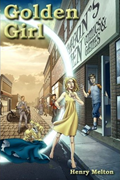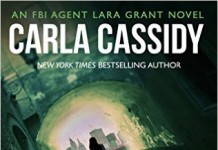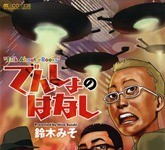
 Standard disclaimer for the FTC: I received a free review e-copy of Golden Girl, as I did all of Mr. Melton’s e-books except for Emperor Dad (which I bought). Also, Mr. Melton, his wife Mary Ann, and his dog Sissy stopped by my apartment for a couple of hours the other day, and they gave me a nice print of one of Mrs. Melton’s nature photographs. Of course, even without the FTC I would have said so anyway.
Standard disclaimer for the FTC: I received a free review e-copy of Golden Girl, as I did all of Mr. Melton’s e-books except for Emperor Dad (which I bought). Also, Mr. Melton, his wife Mary Ann, and his dog Sissy stopped by my apartment for a couple of hours the other day, and they gave me a nice print of one of Mrs. Melton’s nature photographs. Of course, even without the FTC I would have said so anyway.
That being said, I’m giving this book a positive review because I like it, not out of any sense of obligation. I do realize I’ve reviewed an awful lot of Mr. Melton’s books here, but on the other hand I feel that as a small-press publisher he needs all the publicity he can get—and for writing such good books, he deserves it, too.
Golden Girl by Henry Melton
|
A Foreign Country
L.P. Hartley said “The past is a foreign country,” and most time travel stories seem to take that literally: they treat it as just another place that happens to be separated by years instead of miles. Far too often, time travel is used as a cheap device for exposing characters to “future shock” (or “past shock”) without thought to the consequences that should occur from someone being displaced out of his own time.
Stories that give serious consideration to the issues of paradox and causality in time travel are few and far between. After all, just thinking about that kind of thing too much can make your head ache. Far easier just to sweep it under the rug like Doctor Who, Quantum Leap, or the later Star Trek series’ time travel episodes (though the first time travel Trek story, “City on the Edge of Forever”, is considered one of the greatest time-travel stories ever).
But Henry Melton’s latest young-adult book, Golden Girl, is one that treats time travel the right way. It starts from an interesting premise, adds a unique time travel mechanic, and puts a teenaged girl at the center of an interesting dilemma—with nothing less than the survival of the entire human race at stake! (Minor spoilers below the jump.)
The Premise
The story begins when 17-year-old Debra Barr wakes up not in her bedroom at home, but decades into the future when a team of scientists working covertly have pulled her forward in time.
The chief scientist explains that a few hours after the time from whence she came, Debra and a friend will make an embarrassing video that ends up on the Internet—in which a nearby meteor strike knocks Debra down and makes a laughingstock not only of her, but of the proposed legislation in Congress that would fund an initiative to watch for dangerous asteroids.
The initiative goes unfunded, and twelve years later a huge, previously-undetected meteor hits earth and kills most of its population, dooming the rest to slow starvation as their resources fail. But, the scientist explains, Debra can prevent all that if she simply moves a few steps away from where she had been standing, so the meteor will not knock her down and make her look ridiculous. That video, when posted to the ‘net, will assure the sky watch bill’s passage.
Naturally Debra agrees (who wouldn’t?), and the scientists send her back to her own time. Except that she overshoots and finds herself swinging back and forth through time like a pendulum—stopping in the past, then the future, then the past, then the future, each time a little bit closer to home. And when she finally does return home, her real troubles may only be beginning.
Not Your Usual Time Travel Story
Time travel is, as I mentioned, a popular trope in our fiction, even if much of the time it isn’t explored to its fullest potential. All the same, it may be a useful shorthand to call this book “a little bit Quantum Leap, a little bit Back to the Future, and a little bit ‘City on the Edge of Forever’”. Not to say it steals from any of them, but there are some elements also used by each of these in the way Golden Girl treats time travel.
But unlike all of these, Golden Girl’s time travel process does not simply place people in different times. As part of the physics of the process, the relative “reality levels” of people or things displaced in time are different.
Because changes to the past can affect the future, objects from the past are “more real” than anything from future times. When she is first taken into the future, Debra can punch through walls as if they are paper maché—but when she is sent into the past, leaves and grass hurt her feet like sharp gravel. Being in the past is hazardous to Debra—but in the future, she is hazardous to those around her. This is a refreshing change from the sort of story I mention above.
Melton’s Young Adults
One of the things I have always enjoyed about Henry Melton’s books—and Golden Girl is no exception—is that they feature intelligent, self-reliant teens who are by and large able to solve their own problems. They may make mistakes, but they are the mistakes any teenager might make—not dumb, contrived ones that happen merely to further the plot.
It is fun to watch the characters work through their problems, using just their minds and any special abilities they might have—not least because they generally work through the implications of special events, powers, or technologies they have happened upon. If something seems obvious to the reader, chances are it will be obvious to the characters, too—and it will be remembered for later use.
There is nothing “juvenile” in how these young-adult
novels are put together. Henry Melton is a master storyteller, and I will be anxiously awaiting his next work.
































